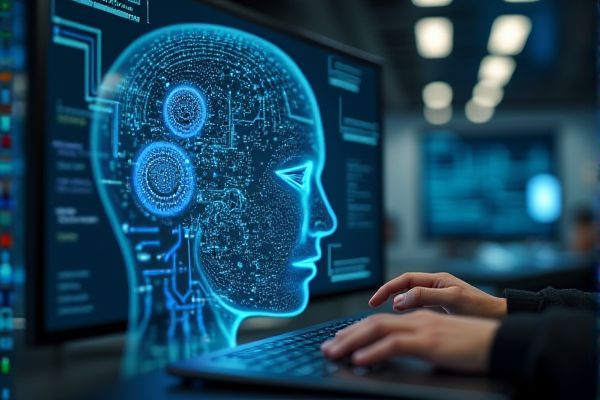
AI enhances personalized learning experiences by analyzing student performance and adapting curricula to individual needs. Intelligent tutoring systems provide instant feedback and support, allowing learners to progress at their own pace. Data analytics informs educators about trends in student engagement and knowledge gaps, enabling targeted interventions. Virtual assistants efficiently handle administrative tasks, freeing up educators to focus on teaching and mentoring.
AI usage in educational technology
Adaptive Learning Platforms
AI usage in educational technology can enhance learning experiences by providing personalized content tailored to individual student needs. Adaptive learning platforms, such as DreamBox Learning, utilize algorithms to analyze student performance and adjust lessons accordingly. This individualized approach can potentially improve student engagement and outcomes by addressing diverse learning paces. The use of AI in this context presents opportunities for more effective educational interventions and resource allocation.
Intelligent Tutoring Systems
AI in educational technology offers the potential for personalized learning experiences through Intelligent Tutoring Systems (ITS). These systems can adapt to individual student needs, enhancing engagement and comprehension in subjects like mathematics or language learning. By analyzing student performance data, ITS can provide tailored feedback and resources, potentially improving learning outcomes. This shift may also lead to more efficient use of instructors' time, allowing them to focus on more complex educational challenges.
Automated Feedback and Assessment
AI can significantly improve educational technology by providing personalized feedback and assessment tools. For instance, platforms like Turnitin utilize AI to detect plagiarism, allowing students to learn from their mistakes. The potential for real-time assessment enhances learning outcomes, as immediate feedback can guide students' study habits. Incorporating AI in educational settings may lead to more efficient resource allocation and tailored teaching strategies.
Personalized Learning Experiences
AI in educational technology can enhance personalized learning experiences by analyzing student performance data to tailor instruction. For instance, platforms like Khan Academy adapt content based on individual learning paces, providing targeted resources. This approach may increase engagement and improve learning outcomes by addressing specific needs. The possibility of creating customized learning journeys could significantly benefit both students and educators in achieving academic goals.
Data-Driven Instructional Design
AI has the potential to revolutionize educational technology by providing personalized learning experiences. Data-driven instructional design can leverage student performance data to tailor curricula, making it more effective for diverse learners. For example, an institution like Stanford University has been exploring AI algorithms to enhance adaptive learning platforms. This approach could improve student engagement and retention rates by addressing individual learning needs more accurately.
Virtual and Augmented Reality in Learning
AI can potentially enhance educational technology by personalizing learning experiences based on student performance and preferences. Virtual and Augmented Reality applications, such as Google Expeditions, create immersive environments that may improve engagement and retention of information. The integration of these technologies could provide opportunities for interactive simulations that align with various learning styles. As educators explore these advancements, there remains a chance to create more effective and inclusive learning environments.
Natural Language Processing for Education
AI can enhance educational technology by offering personalized learning experiences tailored to individual student needs. Natural Language Processing, for instance, allows for the development of intelligent tutoring systems that can provide immediate feedback and support. The integration of AI tools can improve student engagement and comprehension in subjects like language arts. Platforms like Duolingo effectively demonstrate how AI can assist learners in mastering new languages through interactive exercises.
Gamification and AI Integration
AI can enhance educational technology by personalizing learning experiences for students. Gamification elements, such as points and badges, can motivate learners and increase engagement levels. Integrating AI with gamified platforms, like Kahoot!, may provide real-time feedback and adaptive challenges tailored to individual progress. This combination holds the potential to improve educational outcomes and foster a more interactive learning environment.
Early Warning Systems for Student Performance
AI in educational technology can analyze student data to identify those at risk of underperforming. Early Warning Systems for Student Performance utilize algorithms to predict outcomes based on various indicators such as attendance and grades. Implementing these systems in institutions like universities could enhance personalized learning approaches. This adaptability increases the chance of improving student retention and success rates.
Collaborative Learning and AI Tools
AI tools can enhance collaborative learning by providing personalized feedback and resources to students engaged in group projects. For example, platforms like Google Classroom utilize AI to analyze student participation and suggest optimal team configurations. These tools increase the likelihood of improving learning outcomes by tailoring instruction to specific needs. Integrating AI in education may present opportunities for more efficient resource allocation in institutions like Stanford University.
 techknowy.com
techknowy.com